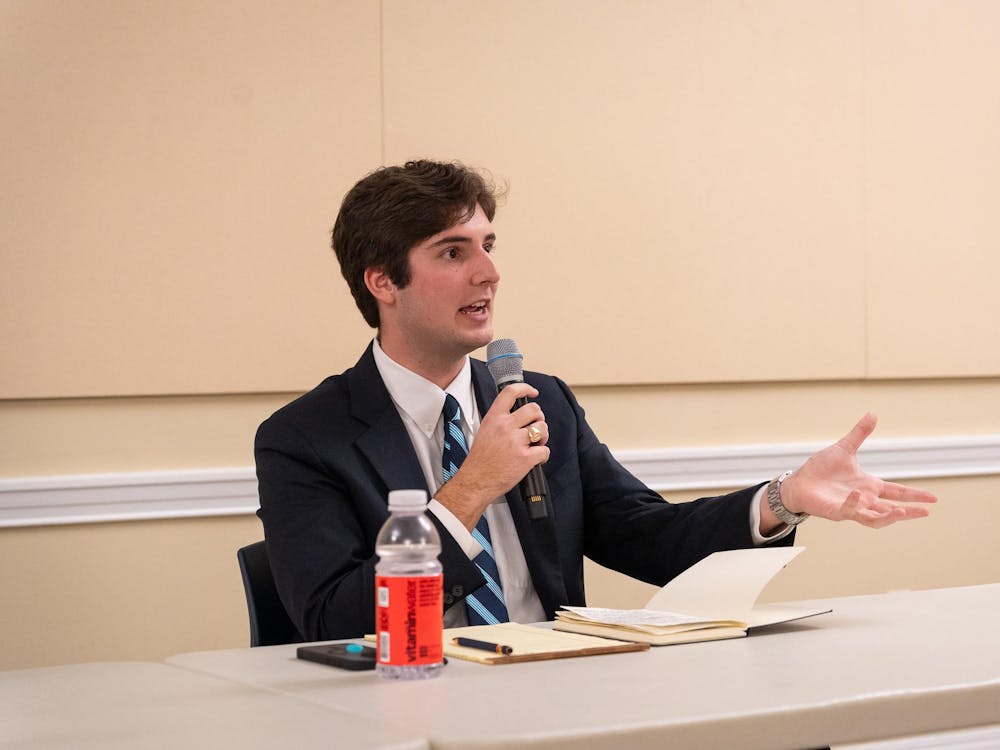The Association of Governing Boards’ Intercollegiate Athletics Project released a report Tuesday examining the role of university governing boards in overseeing athletic programs. Former University President John Casteen, the principal investigator for the study, said the report’s subject reflected problems in collegiate athletic programs that came under scrutiny during the Penn State scandal this year.
The project kicked off before the Penn State story hit the press. But Casteen said the Penn State events are proof that “when the board fails to provide effective oversight or ask the questions that hold the president of the institution accountable, the consequences can be enormous.”
The report aimed to target what some view as a lack of accountability in college athletics.
“As spending on athletics by colleges and universities continues to rise, accompanied by mounting public ire about ethical and moral misconduct, it is critically important that governing boards monitor and oversee the impact of athletics on the academic missions of the institutions for which they have fiduciary responsibility,” Casteen said in a press release.
Training for members of university governing boards often does not focus on the management of athletics departments, Casteen said. “Nobody is prepared to deal with what [the Penn State Board] saw,” he said.
At the University the Board of Visitors does not typically get involved with the athletics department, Athletic Director Craig Littlepage said..
“Primary responsibility for the Department of Athletics resides with the president,” Littlepage said in an email. “My reporting line is to the president [so] the Board of Visitors does not get involved in the day-to-day management of the Department of Athletics.”
Littlepage, however, said he provides reports to the Board at each Board meeting.
The association’s report defined five key areas of responsibility for governing boards: policy, delegation of authority to the institution’s chief executive, financial responsibility, student well-being and compensation of athletics personnel.
A survey of 143 college presidents, representing about 42 percent of Division I institutions, measured how many governing boards had clear policies in place to address each of these categories. About half of respondents’ boards needed stronger athletics policies, according to the report.
The report exposed both positive and negative trends in relationships between governing boards and athletics departments, Casteen said. Two-thirds of institutions had policies regulating interaction between their boards and athletics departments, but many of them were unaware of the annual financial reports the NCAA requires, he said.
In light of events at Penn State, Littlepage said the University had reviewed some of its athletics policies but had not made any substantial changes.
“We have been proactive in providing information and training to our staff … related to incidents of a sensitive nature,” Littlepage said.
The Knight Commission on Intercollegiate Athletics, an advocacy group that aims to reform college sports to emphasize academic values and financial integrity, funded the report. The commission has no affiliation with athletic governing bodies such as the NCAA.






